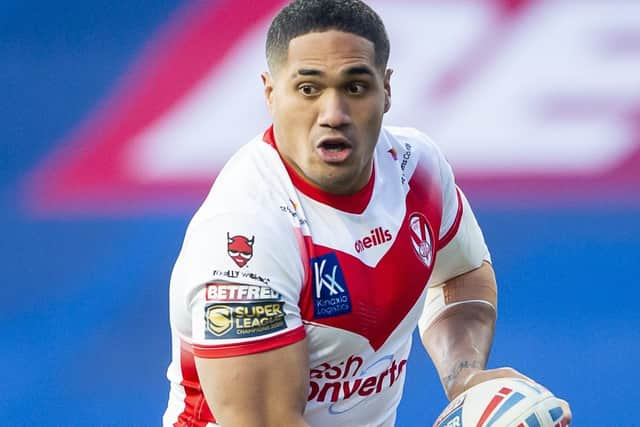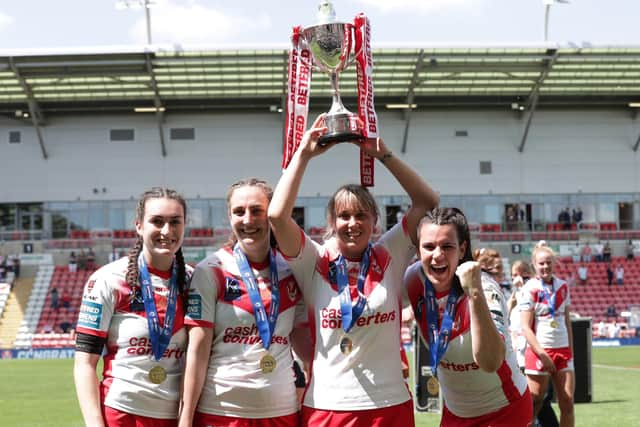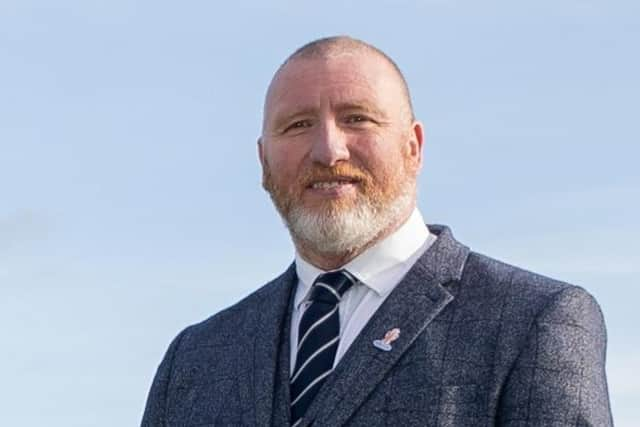‘Elite rugby’ on show in thrilling Challenge Cup triple header – Peter Smith


That trend was reversed when the latest development in the elite academy fiasco was followed 24 hours later by a feelgood Betfred Challenge Cup triple-header.
Politicians, past and present players and fans were united in condemnation when, a couple of weeks ago, the Rugby Football League (RFL) announced only 10 elite academies would be allowed from 2022-2025, with Castleford Tigers Hull KR and Bradford Bulls, who all currently run one, being omitted.
Advertisement
Hide AdAdvertisement
Hide AdClearly, cutting the number of academy places available will not lead to more young men playing the game and, once people power ramped up, a climb down seemed inevitable.


Unfortunately, before that happened – Tigers, Rovers and Bulls all being granted a two-year ‘provisional elite licence’ – RFL chief executive Ralph Rimmer went live on Sky TV to defend the original decision.
Rimmer’s stock has risen during the pandemic, when he has done a fine job of gaining government support and keeping the sport going, but that interview was a mistake.
The RFL still insist “elite should mean elite”, but three clubs whose application was deemed not acceptable – 12 licences could have been awarded initially – are back in, which is a contradiction, though also the right outcome. Anyway, when Saturday came the game showed itself in a much better light, producing competitive rugby, thrilling action and talking points.
Advertisement
Hide AdAdvertisement
Hide AdIn terms of the sport’s long-term health, the Women’s Challenge Cup final between St Helens and York City Knights was most encouraging.


Women’s rugby league has been around for a long time, but has gained real momentum since leading professional clubs became involved.
The value of the women’s code is obvious; it creates new fans and players. To thrive, it needs exposure and the BBC gave it that with live network coverage of the final.
Saints were convincing victors, but York gave a much better account of themselves than the 34-6 scoreline suggests. Saints’ side includes some quality rugby league players, regardless of gender and both they and York did their job as ambassadors for the sport.
Advertisement
Hide AdAdvertisement
Hide AdSurely the next step must be to shift the women’s final to Wembley, which will give it even more prestige.


Both men’s semi-finals were compelling. Saints beat Hull comfortably enough in the end but, with time running out, were only three points ahead and defending their line.
That tie also produced an incident which will be discussed for years, when Hull’s Josh Griffin suffered a torn Achilles, threw the ball down in agony and Saints’ Theo Fages picked up to score.
Bad sportsmanship, or just part of the game? There wasn’t anything else Fages could do, clearly he couldn’t be certain of the circumstances and it’s one of sport’s basic rules – always play to the whistle. Whether, once they knew the try had come as a direct result of a bad injury, Saints should have let Hull score an immediate reply is another matter. That would have won them and the code new friends, but Saints won’t be too concerned if they go on to lift the trophy.
Advertisement
Hide AdAdvertisement
Hide AdThere’s often an upset in the Cup semi-finals and Tigers provided it by thumping Warrington Wolves. Of the possible options, a Tigers-Saints final was the best outcome. Neither has won the competition this decade and both play a crowd-pleasing style. There are also plenty of storylines, not least the Mata’utia sibling rivalry between Castleford’s Peter and Sione, of Saints, and Tigers coach Daryl Powell’s impending move to Warrington at the end of this season.
Only a week ago he was being accused by some Tigers fans of lacking commitment to the club. That argument looks rather daft now.
Featherstone being at Wembley on the same day, for the 1895 Cup final, also adds some spice. Let’s just hope the planners don’t base seating allocations on geography and put Tigers and Rovers fans in the same end!
Support the YEP and become a subscriber today. Enjoy unlimited access to local news and the latest on Leeds United, With a digital subscription, you see fewer ads, enjoy faster load times, and get access to exclusive newsletters and content. Click HERE to subscribe.
Comment Guidelines
National World encourages reader discussion on our stories. User feedback, insights and back-and-forth exchanges add a rich layer of context to reporting. Please review our Community Guidelines before commenting.